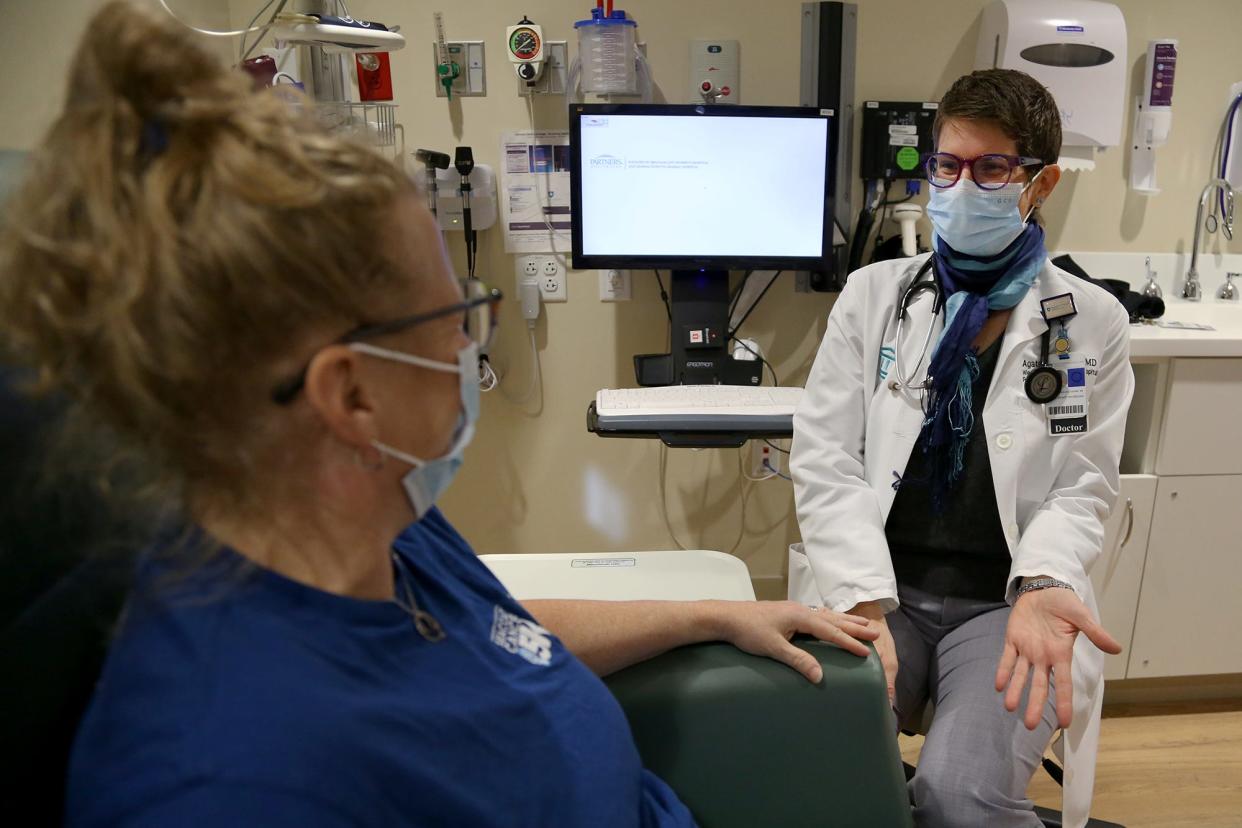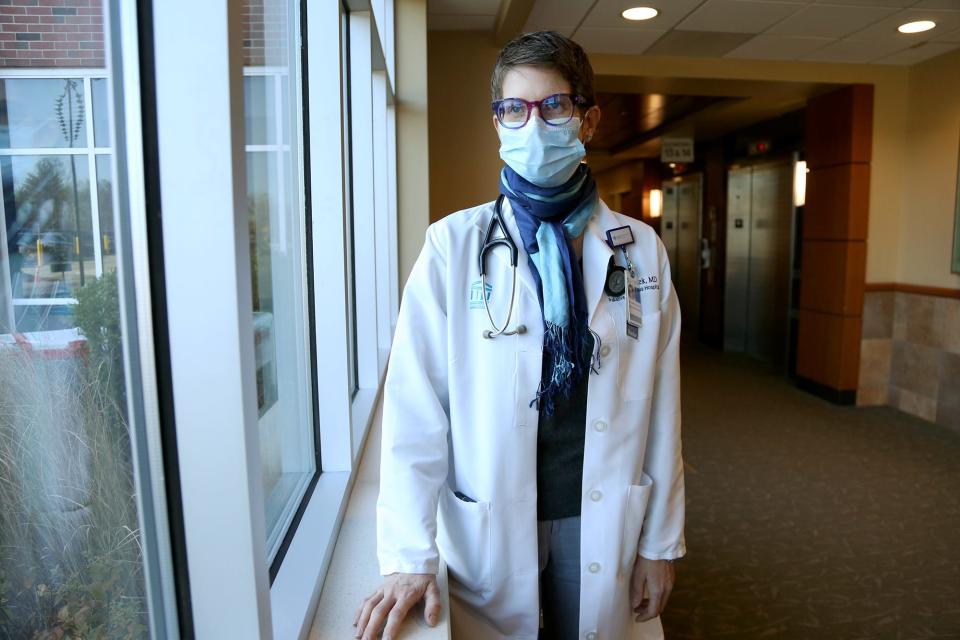What is palliative care? It aims to relieve symptoms of illness, terminal or not

DOVER — Palliative care is utilized in every aspect of health care, but most think it only comes into play as a person nears their end of life in hospice. Palliative care differs from hospice care because it works to relieve the symptoms of illness and the effects of treating the illness even in those who are expected to live.
Dr. Agata Marszalek Litauska heads the palliative and supportive care clinic at Wentworth-Douglass Hospital. It is unusual to have a department solely dedicated to palliative care at a community hospital, she said.
"I introduced palliative care at Wentworth-Douglass 15 years ago," she said. "Gradually, it was embraced as other physicians saw the value. Now I see about 50% of patients in the hospital through their primary care doctors. We have a clinic where we see patients, even some from other area hospitals. We are unique in this for a community hospital. Luckily, our administration understands the importance of this care."
Marszalek Litauska's team currently includes two physicians, two nurse practitioners and she said they are adding per diem nurses. They have an administrator, a chaplain and dedicated social workers.
"Palliative care is a field that has been around for a long time," said Marszalek Litauska. "But hospice and palliative care are often lumped together when they are, in fact, quite separate. All hospice care is palliative care, but palliative care is much more."
The definition of palliative care is medical care that relieves pain, symptoms and stress caused by illnesses. It is often used in minor cases like the flu where there is no actual cure as supportive care, given to alleviate symptoms as the body works to heal itself.
Thus comes the difference between palliative care and hospice care.
In hospice care, there is no expectation that the patient will recover so medical interventions to cure the patient are discontinued. Palliative care is used in hospice to provide comfort care, but can also be used as supportive care when a patient is expected to recover.
Marszalek Litauska said she and her team begin working with a patient at the beginning of a diagnosis. The course of a disease might be a sprint. It might be a marathon.
'It might be a patient diagnosed with stage 1 leukemia," she said. "We know the treatment for such a disease can be toxic for the patient. We can help make them more comfortable during their treatment. We can educate them about their cancer and what to expect in terms of the treatment and the side effects. While the doctor treats the cancer, we address the nausea, the diet. We work with their choices. It might sometimes be aggressive treatment. Or, sometimes the patient is tired and needs to take a break. We help them through those choices by letting them know the options open to them."

Marszalek Litauska said her team has worked closely with so many of the other doctors in their own specialties that in the past decade the team now comes to the mindset of the physicians right away because they see the results of including palliative care in their treatment of patients, of helping their patient cope with the symptoms of treatment.
"Some of those patients may be cured, but during the treatment the side effects can be brutal and can lower the patient's quality of life," said Marszalek Litauska. "We work with the effects of treatment, and with the emotional and psychosocial care of the patient."
More:What Seacoast parents should know about wave of kids hospitalized by respiratory virus
Marszalek Litauska said they will help the patient make a plan for how to deal with their care.
"Even for a patient with dementia; we can help them plan while they are still able," she said. "This way, the patient and their family know what to expect, and the family knows the wishes of the patient. We help them understand while there is awareness and that is also palliative care. The family needs to understand the choices as well, so they can support their loved one. The caregiver burden is high and we work with them, too. We talk about the importance of respite, of their taking time to take care of themselves."

The work is rewarding. Marszalek Litauska says one of her favorite pieces is getting to know the patient, getting to know their story.
"I saw a 97-year-old lady last week," she said. "She was an artist and had just finished a novel."
In 2020, the clinic won the Ira Byock and Yvonne Corbeil Award for its innovative care.
Established in 2014, the annual Ira Byock and Yvonne Corbeil Award, given by the Home Care, Hospice and Palliative Care Alliance of New Hampshire recognizes a provider who has improved quality, expanded access and increased efficiency while delivering the best care possible to patients with severe illnesses in New Hampshire.
"I came to this specialty because I love my grandmother," said Marszalek Litauska. "As I trained in medicine in New York City, I saw that some families never had these discussions. I saw a great void there, and families living with decisions they were forced to make without being sure they were doing the right thing."
This article originally appeared on Fosters Daily Democrat: Wentworth-Douglass Hospital doctor explain palliative care clinic

